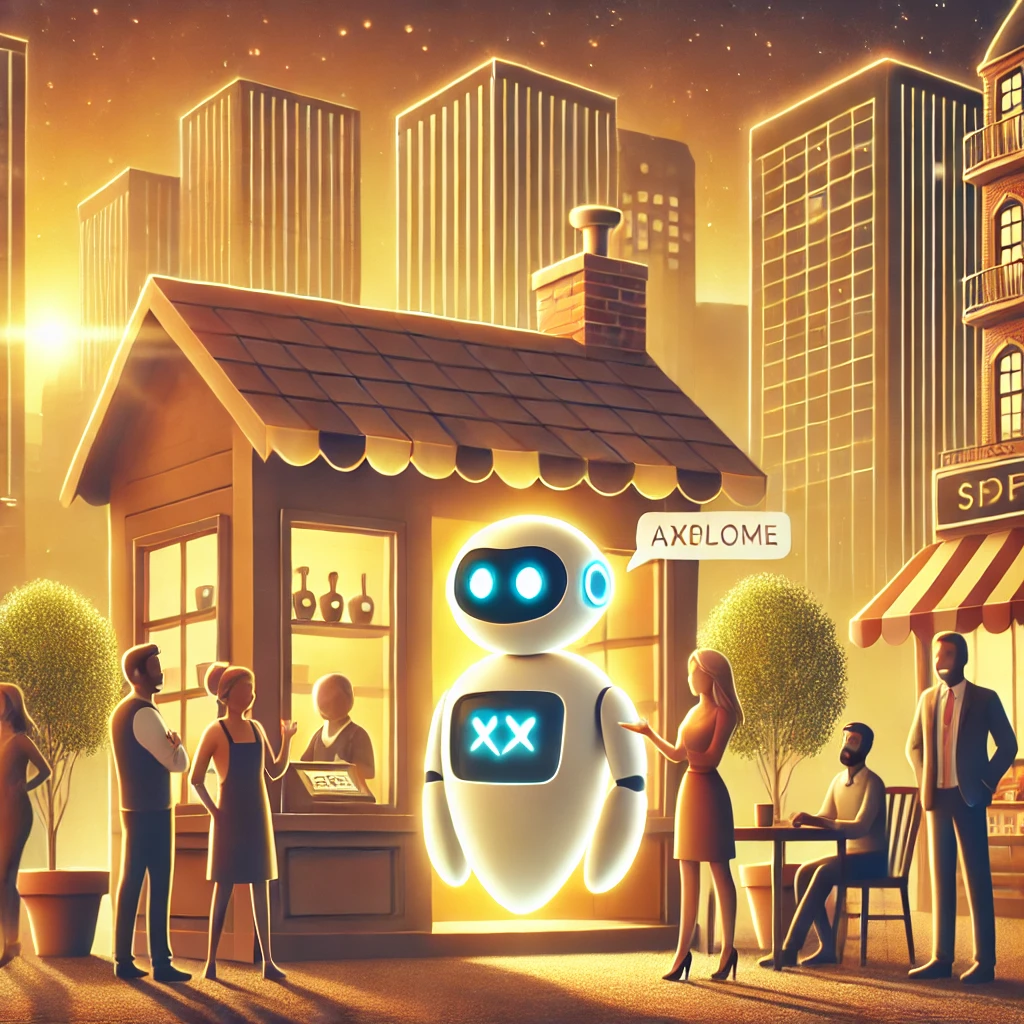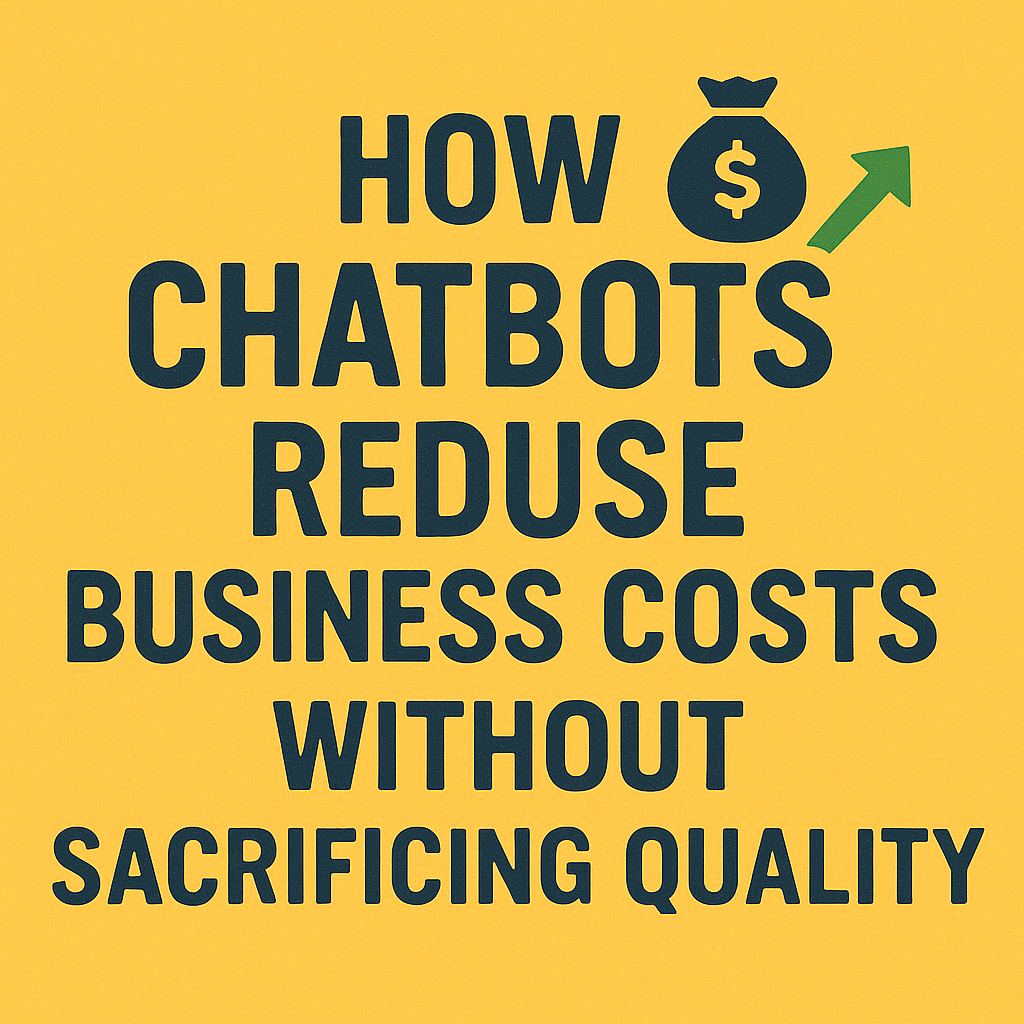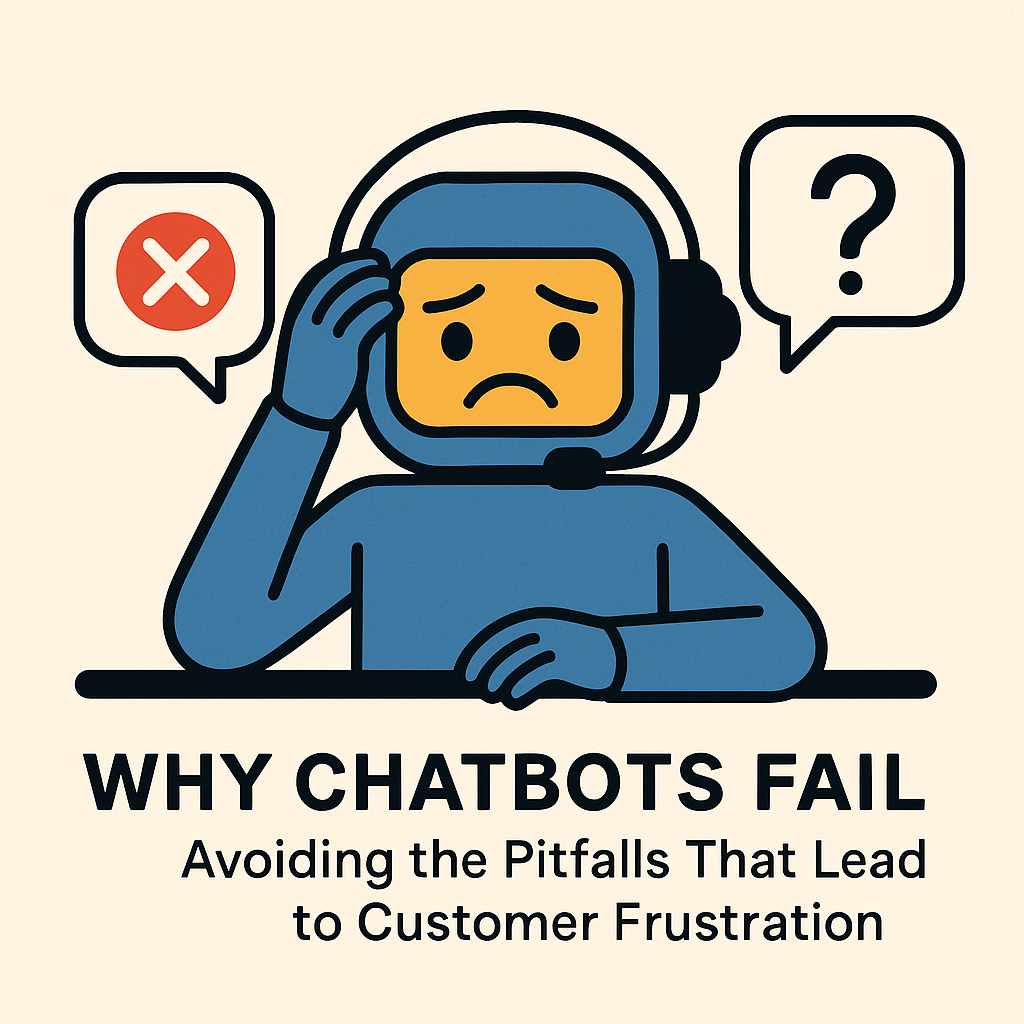David v Goliath
Why Small Businesses Need Chatbots to Compete with Big Brands

David vs. Goliath: Why Small Businesses Need Chatbots to Compete with Big Brands
Remember the days when competing with big brands meant you needed a massive staff, multiple locations, and a marketing budget that made your accountant break out in hives? Those days are officially over, and chatbots are one of the secret weapons leveling the playing field.
Small businesses across America are discovering that chatbots aren’t just futuristic luxuries for tech giants – they’re affordable, practical tools that can help the neighborhood bookstore deliver the same level of service as Barnes & Noble, or the local boutique compete with fashion chain stores. Let’s dive into why your small business might need a digital assistant to punch above its weight class.
The Illusion of Size: Looking Bigger Than You Are
24/7 Availability Without the 24/7 Payroll
Big brands have massive customer service departments with representatives ready to assist at 3 AM. As a small business owner, you’re probably not eager to field customer questions in your pajamas at midnight (although we admire your dedication if you do).
A chatbot creates the impression that your business never sleeps, even when you and your entire staff are enjoying well-deserved rest. When a potential customer visits your website at odd hours and receives an immediate response, they don’t know – or care – whether it’s coming from a massive call center or a cleverly programmed digital assistant.
The Perception of Scale
There’s a psychological advantage to appearing larger than you are. When customers interact with a responsive, efficient system, they naturally assume there’s a substantial operation behind it. Your five-person business can suddenly feel like a fifty-person company from the customer’s perspective.
Resource Maximization: Doing More With Less
The Human Touch Where It Counts
Small businesses have always competed on personalized service, but let’s be honest – some customer interactions don’t require the human touch. When someone asks “What are your hours?” for the fifteenth time today, that’s not where your team’s talents shine.
Chatbots handle the routine inquiries, freeing your small team to focus on complex customer needs that truly benefit from human creativity, empathy, and problem-solving skills. It’s about deploying your limited human resources where they create maximum value.
Scaling Without Hiring
Every small business faces the growth paradox: you need more help to grow, but can’t afford more help until you’ve grown. Chatbots offer a partial solution by handling increasing volumes of customer interactions without proportional increases in staff. Your business can serve more customers without immediately expanding your team.
Competitive Service Features: Matching Big Brand Capabilities
Instant Response Times
In an age of impatience, waiting even a few hours for a response can send customers to competitors. Big brands have invested millions in reducing response times – but a well-configured chatbot can match or beat them without breaking your budget.
When a customer has a question about a product at 9 PM, getting an immediate answer might be the difference between making a sale and losing one to the big-box store down the street.
Consistent Quality
We all have bad days, but inconsistent customer service can damage a small business far more than a large one. While your chatbot won’t have coffee spills or argument-with-spouse days, it will deliver the same pleasant, helpful responses regardless of circumstances.
Multilingual Support
That national chain might have Spanish-speaking staff on call, but as a small business, hiring multilingual employees might not be feasible. Modern chatbots can communicate in multiple languages, allowing you to serve diverse customer bases without additional staffing.
Data-Driven Advantages: Knowing What Big Brands Know
Customer Insights Without Enterprise Analytics
Big companies spend fortunes on customer analytics, but chatbots provide small businesses with valuable data almost as a side effect. Every interaction reveals what customers are asking about, what products generate confusion, what times of day people need assistance, and countless other insights.
This information helps you stock the right products, create better FAQs, adjust business hours, and make dozens of other improvements based on actual customer behavior rather than guesswork.
Personalization at Scale
Big brands use sophisticated systems to remember customer preferences and personalize experiences. Your chatbot can do the same by recalling past purchases, preferred products, or previous issues – creating the tailored experience customers expect from their favorite small business, but with digital efficiency.
Cost-Effective Marketing: Competing Without the Big Budget
Lead Generation While You Sleep
Your chatbot isn’t just answering questions – it’s identifying potential customers. When someone asks detailed questions about your products or services, that’s a qualified lead being handed to you on a digital silver platter.
Big brands pay marketing agencies substantial sums for lead generation, but your chatbot is quietly building your prospect list through natural conversations.
Proactive Engagement
Walk into a big retail store, and you’ll likely be greeted by a staff member. Your website can offer the same welcome through a chatbot that initiates conversations with visitors, offers assistance, and guides them toward products that might interest them – no extra staff required.
The Small Business Advantage: Adding Personality to Automation
Here’s where small businesses can actually outperform their larger competitors: personality. Corporate chatbots often feel, well, corporate. As a small business, you can infuse your chatbot with the unique character of your brand:
Local Knowledge and Charm
Program your chatbot to mention local events, neighborhood references, or regional expressions that big brand bots would never include. A bookstore chatbot that says, “We’re just two blocks from the farmer’s market – stop by after you get your Saturday morning coffee!” creates a connection no national chain can match.
Owner’s Voice
The most effective small business chatbots reflect the personality of their owners. If your customers love your dry humor or enthusiastic recommendations in person, make sure your digital representative carries that same voice.
Implementation Without IT Departments: Getting Started Realistically
Unlike major corporations with dedicated IT teams, small businesses need practical, manageable solutions:
No-Code Platforms
Modern chatbot platforms require no programming knowledge. If you can use social media or basic office software, you can set up a functional chatbot.
Start Simple, Grow Gradually
Begin with your most common customer questions, then expand your bot’s capabilities as you become more comfortable with the technology.
Hybrid Approaches
The most effective small business chatbots know when to bring in humans. Design your system to handle what it can while smoothly transitioning to personal service when needed.
Real Success Stories: Small Businesses Winning with Chatbots
The Boutique That Never Closes
A women’s clothing boutique in Seattle implemented a chatbot that could show product images, check inventory, and even facilitate purchases after hours. The owner reported a 23% increase in online sales, with nearly half of those occurring outside normal business hours.
The Restaurant That Never Forgets
A family-owned restaurant in Chicago uses a chatbot to handle reservations, remember customer preferences, and send personalized offers. They’ve reduced no-shows by 30% and increased repeat business through tailored promotions.
The Plumber Who’s Always Available
A plumbing company in Atlanta implemented a chatbot that could schedule appointments and qualify emergency calls. Their response time for genuine emergencies improved dramatically, while routine scheduling became more efficient.
The Bottom Line: Digital David vs. Corporate Goliath
The biblical David didn’t beat Goliath by trying to be bigger or stronger – he won by being smarter and using the right tools. Today’s small businesses can apply the same strategy. Chatbots aren’t about pretending to be a big business; they’re about delivering big business capabilities while maintaining the personal touch that makes small businesses special.
In a world where customers expect immediate answers, 24/7 availability, and personalized service, chatbots aren’t just nice-to-have technology – they’re increasingly essential tools for small businesses that want to not just survive, but thrive alongside much larger competitors.
The good news? Getting started is more affordable and straightforward than most small business owners realize. And unlike many business investments, chatbots begin delivering value from day one – answering questions, generating leads, and creating that crucial first impression that says your small business is ready to compete with anyone, regardless of size.
After all, in the age of digital transformation, it’s not the size of the business in the fight – it’s the size of the fight (and the right tools) in the business.





